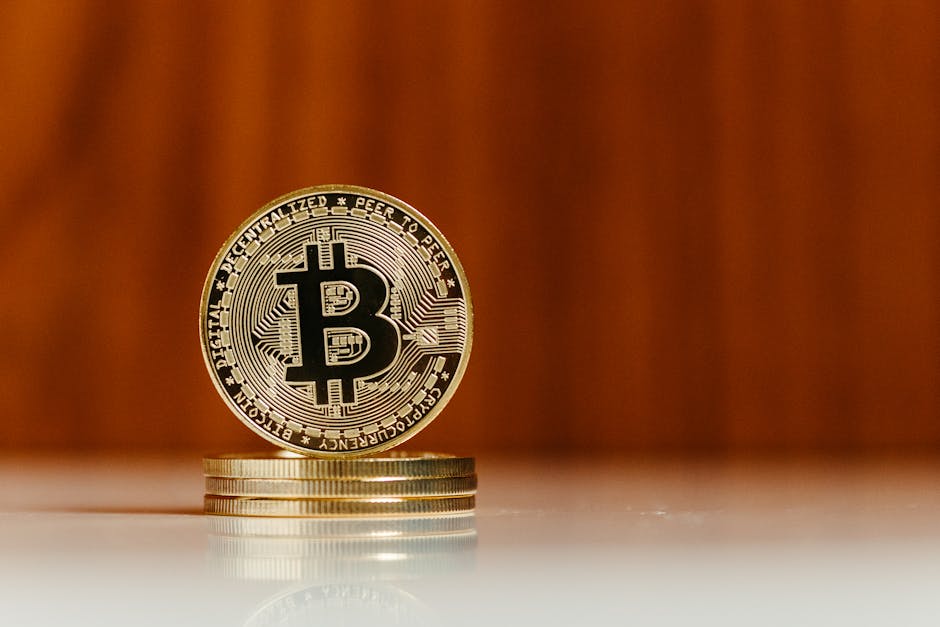
Washington Fuelled the Bitcoin Bubble, Peter Schiff Warns
For years, economist and prominent gold advocate Peter Schiff has been a vocal skeptic of Bitcoin, often clashing with crypto enthusiasts over its fundamental value and long-term viability. In a recent interview, Schiff reiterated his long-held conviction, asserting that Bitcoin's remarkable price appreciation isn't a testament to its inherent strength, but rather a direct consequence of policies emanating from Washington D.C. and the increasing embrace of Wall Street. He warns that this combination has created a speculative bubble, vulnerable to collapse once these artificial supports diminish.
The Government's Role: An Unintended Catalyst?
Schiff's argument centers on the unprecedented monetary expansion undertaken by the U.S. government and the Federal Reserve, particularly in the aftermath of the 2008 financial crisis and amplified during the COVID-19 pandemic. He points to years of quantitative easing, ultra-low interest rates, and massive fiscal stimulus packages that injected trillions of dollars into the economy. This influx of liquidity, Schiff contends, didn't just prop up traditional markets; it also spurred a search for alternative assets, including speculative investments like Bitcoin.
When governments print vast amounts of money, the purchasing power of fiat currencies tends to diminish. For many investors, Bitcoin presented itself as a potential hedge against inflation and a store of value independent of central bank control. However, Schiff flips this narrative. He argues that Bitcoin's rise isn't a natural, market-driven response, but an outcome of these policies – a place where excess capital, devalued by government actions, flowed in search of higher returns, regardless of underlying fundamentals. In his view, Washington's economic policies created the very conditions ripe for asset bubbles, and Bitcoin simply became one of the most prominent beneficiaries.
Wall Street's Embrace: Legitimacy or Leverage?
Beyond government intervention, Schiff highlights Wall Street's growing acceptance of Bitcoin as another crucial, yet problematic, pillar of its recent success. What was once dismissed as a niche, speculative digital asset has now found its way into the portfolios of major institutions, with the launch of Bitcoin futures and, more recently, spot Bitcoin Exchange-Traded Funds (ETFs). This institutional legitimization has opened the floodgates for traditional capital, making it easier for large funds and retail investors alike to gain exposure without directly holding the cryptocurrency.
Schiff views this institutional embrace not as an endorsement of Bitcoin's intrinsic value, but rather as Wall Street's opportunistic move to package and profit from a burgeoning speculative trend. He suggests that traditional finance is adept at creating new products around popular assets, regardless of their long-term viability, effectively amplifying the speculative fervor. This institutional on-ramp has brought in significant capital, media attention, and a narrative of mainstream adoption, all of which contribute to the perception of Bitcoin's enduring strength, according to Schiff, but do not change its speculative nature.
A Bubble in the Making? Schiff's Dire Warning
Consistent with his long-standing criticism, Peter Schiff maintains that Bitcoin exhibits all the classic characteristics of a speculative bubble. He asserts that its price is driven almost entirely by sentiment, hype, and the "greater fool" theory – the belief that someone else will pay even more for an asset, regardless of its true worth. For Schiff, Bitcoin lacks the intrinsic utility or tangible backing that defines a valuable asset, making its current valuation unsustainable.
He warns that when the underlying "fuel" — easy money from Washington and institutional enthusiasm from Wall Street — begins to wane, the bubble will inevitably burst. Should the Federal Reserve reverse its monetary policies, engaging in sustained quantitative tightening and higher interest rates, or should institutional sentiment shift, the liquidity that once flowed into Bitcoin could rapidly dry up. Schiff predicts a dramatic correction, leaving many investors, particularly those who entered at inflated prices, with substantial losses, much like in previous market bubbles he has observed throughout his career.
Beyond the Hype: What If the Fuel Runs Out?
Schiff's perspective serves as a stark counterpoint to the prevailing optimistic narratives within the crypto space. While many see Bitcoin as digital gold, an inflation hedge, or a revolutionary decentralized currency, Schiff positions it as a highly leveraged beneficiary of economic distortions. He challenges investors to consider what happens if the very forces he believes are propping up Bitcoin — excessive government spending and institutional opportunism — are curtailed or reversed.
His warning underscores the importance of critical analysis beyond the price charts and market hype. While Peter Schiff remains a controversial figure in crypto discussions, his arguments prompt a crucial question: Is Bitcoin's current trajectory a genuine evolution of finance, or is it, as he suggests, largely a product of a unique macroeconomic environment that may not last?
Keywords: Crypto
